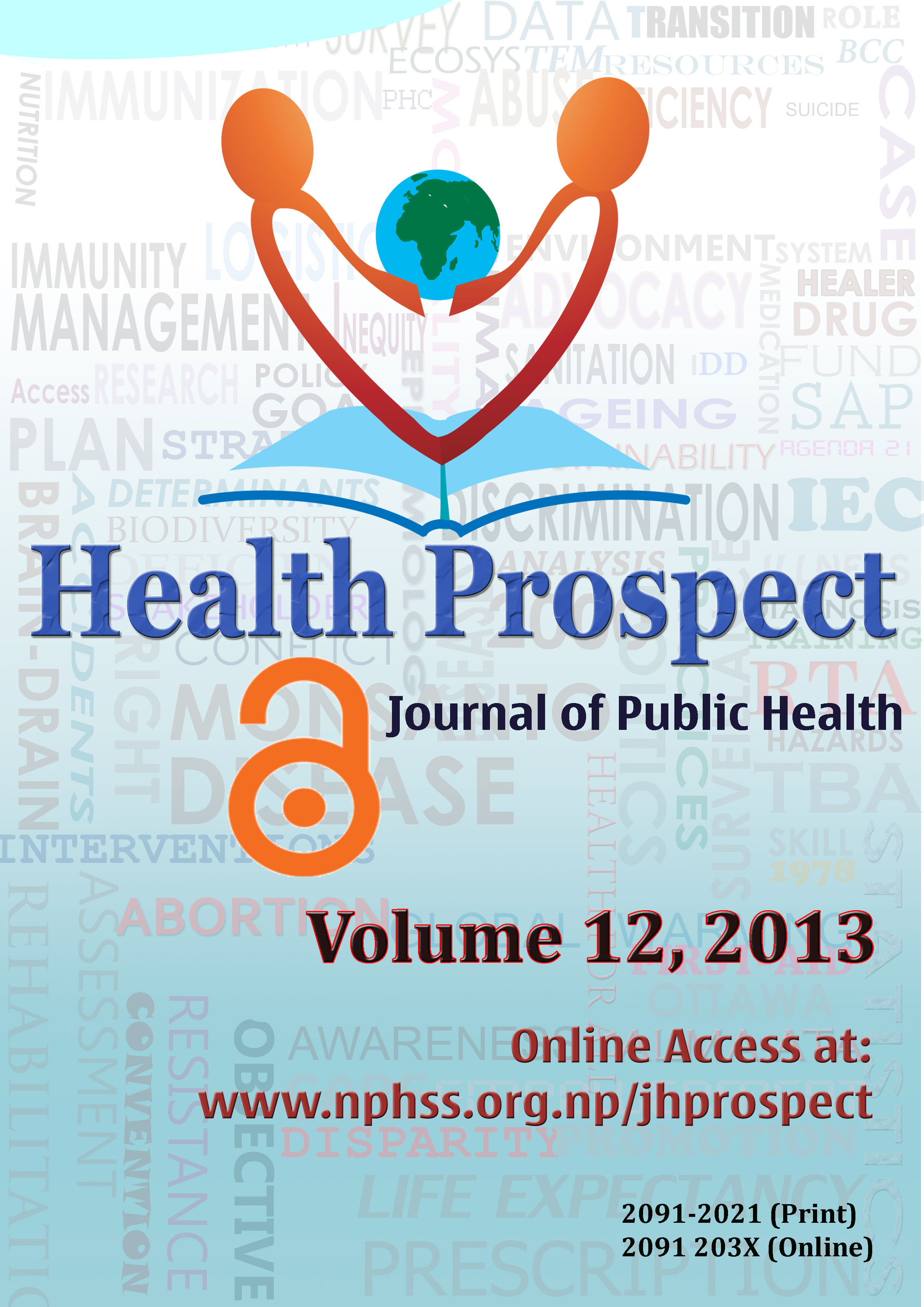A gap between Law and Practice: A Community’s Perception of Unmarried Women’s Abortion Options in Nepal
DOI:
https://doi.org/10.3126/hprospect.v12i2.9869Keywords:
abortion, unmarried women, Nepal, sexual and reproductive health and rightsAbstract
Background In 2002, the Nepalese abortion law went from being highly restrictive to fully liberal. This study aimed to explore a local community’s perception of the situation for unmarried Nepalese women wanting to practice their legal right to abortion.
Methods The study comprised a cross-sectional survey and in-depth interviews with men and women above the age of 16 years living in the Makwanpur District, Nepal. The final data included 55 questionnaires and 16 interviews. The questionnaire data was univariate analysed, while a condensation of meaning analysis was carried out on the interviews.
Results The overall awareness of abortion being legal was high, although the extent of knowledge of the specific legal grounds varied. Unmarried women were believed to have access to abortion services, although they risked stigmatisation due to their marital status. The community attitude towards these women having abortions was very negative, hence it differed from the legal acceptance of all women having the right to abortion. This was explained by societal norms on premarital sexual activity. Generally, the participants felt that changing attitudes would be difficult but possible over time.
Conclusion A considerable gap exists between the legal acceptance of abortion and community attitudes when it comes to unmarried women as this group encounters barriers when wanting to practice their right. Therefore, these barriers need to be addressed to allow unmarried Nepalese women access to safe abortion services without the risk of being stigmatised.One possible alternative is educational initiatives such as disseminating information vigorously through mass media to create awareness.
DOI: http://dx.doi.org/10.3126/hprospect.v12i2.9869
Health Prospect Vol.12(2) 2013: 24-30




